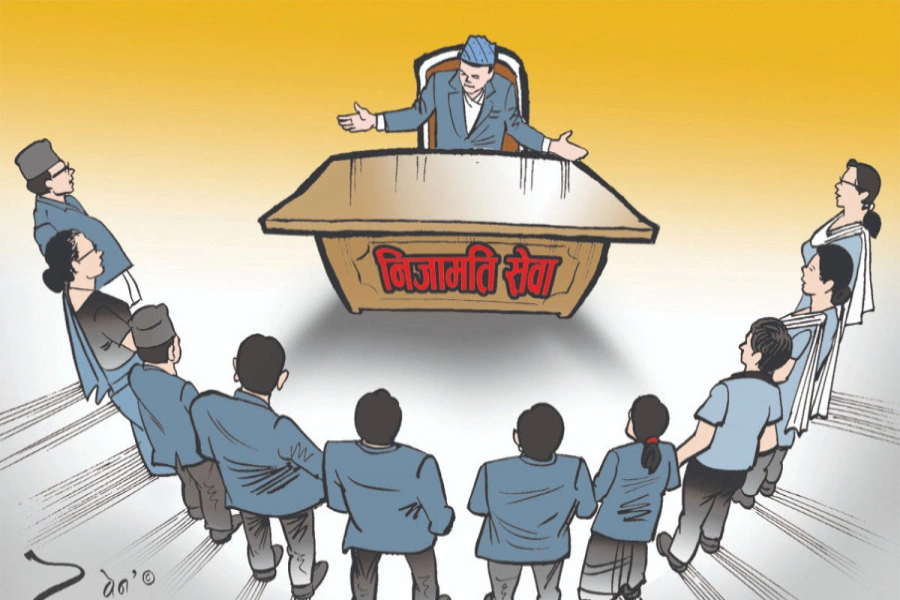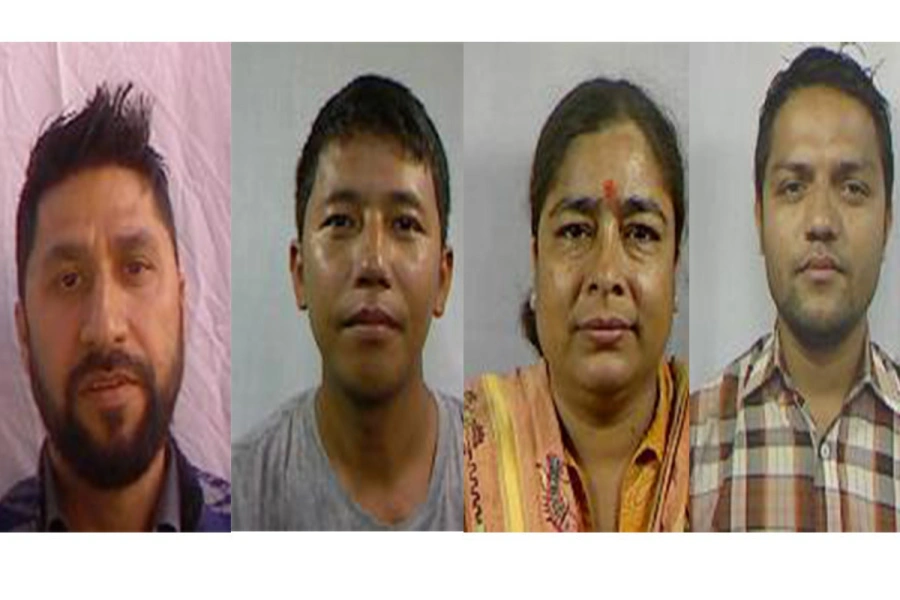KATHMANDU, July 30: Although the reservation quota for Public Service Commission (PSC) examinations is supposed to be reviewed every 10 years, it has not been updated for 17 years. Due to the lack of revision, the reservation quota has not been extended to the target groups. PSC officials said that because of this lack of review, a situation has come where even positions within some reserved quotas cannot be filled.
The reservation quota was established in 2007 by amending the Civil Service Act of 1993. Section 7(11) of the Act clearly states that the reservation quotas must be reviewed every 10 years. Two Supreme Court (SC) rulings have directed the Nepal government to address the reservation groups specified in the 2015 Constitution. The SC issued these orders to the government in December 2020 and January 2023. However, the government has neither implemented the apex court directive nor reviewed the reservation quota in 17 years.
In every annual report, the PSC has brought up the issue of the government's failure to review the reservation quota system to the president. “We have requested the government to review the reservation quota through the annual report,” said Gita Kumari Humagain, spokesperson for the PSC, “Reviewing does not fall under our responsibility but under the government’s. The government has not done so.”
Due to the lack of timely review of the reservation quota, some reserved positions remain unfilled, Humagain said. To review the reservation quotas, the Civil Service Act also needs to be amended. The government has neither amended the Act nor introduced a Federal Civil Service Act to replace it.
Misuse of reservation system on the rise as govt fails to revie...

Following the promulgation of the Interim Constitution in 2006, the Civil Service Act was amended in 2007 to include reservation quotas in PSC examinations, as per the spirit of the Constitution. Reservation quotas were set for six groups: women, Madhesi, Dalits, persons with disabilities, indigenous ethnic groups, and backward communities.
The 2015 Constitution, issued by the Constituent Assembly, mandates the inclusion of additional groups- Khas Arya, Tharu, Muslims, and minority groups- in the reservation quotas. However, due to the lack of review, these quotas have not reached the intended reserved groups as per the spirit of the Constitution.
Due to the lack of review, the reservation quota seems to be dominated by clever, affluent, and urban communities. According to spokesperson Humagain, as many as 27,000 people have benefited from the reservation quota since 2007.
The Nepal Inclusion Commission (NIC) has recommended that the government not provide reservation facilities to the children of employees above the level of ministers, parliamentarians, and joint secretaries, citing widespread misuse of the reservation quota. The government has been urged to address the fact that the reservation quota is dominated by the wealthy, upper classes, and urban communities.
In its report ‘Bidhyaman Sarkari Sewama Aarakshan Prabhav (Attraction Towards and Influence Over Existing Government Services),’ prepared two years ago, the NIC concluded that most of the reservation quotas are occupied by the wealthy, while genuinely deserving individuals have been deprived.
The NIC has suggested prohibiting the children of personnel who have entered the service and reached the first-class officer rank or above in the civil service, or who have reached the tenth level or above under the Nepal Health Service, from entering the service through reservation.
Additionally, the report has suggested that reservation services should also be prohibited for the children of ministers, deputy ministers, assistant ministers, members of parliament, or any one of them who pays more than Rs 200,000 in annual income tax, and who are businesspeople, traders, industrialists, doctors, engineers, or lawyers.
The commission has also expressed concern that misuse has increased in the name of reservation. To take advantage of the reservation quota, there is a tendency among indigenous communities, Madhesi, and Dalits to repeatedly change their surnames, falsify surname certificates, and use changed surnames after marriage while applying.
Similarly, since the standard for disability has not been determined, even those who have disabilities that do not affect their physical or mental conditions are included in the quota for people with disabilities, according to the report. The report mentions that it is not justified for people with general disabilities, such as short legs, missing fingers, or normal speech, to benefit from reservation.
The NIC also reported cases where individuals who are no longer disabled are repeatedly taking advantage of the quota by showing old disability reports. Additionally, there are issues with those who obtain reservations based on residence in backward areas, as noted in the report.
The report also states that those who have not formally migrated but are living elsewhere with facilities are taking advantage of backward area reservations by creating citizenship based on their parents' citizenship or proof of residence. It mentions cases where one spouse is from a backward area, the other spouse also arranged to take advantage under the same reservation quota provision.





































